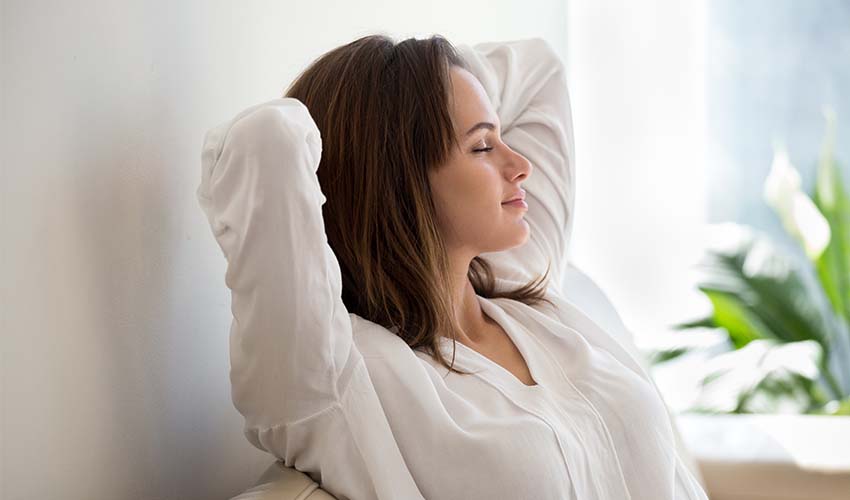Anxiety is an emotional response, which is characterized by feelings of tension, negative thoughts and worry. It is often accompanied by physical changes, such as a rapid increase in blood pressure, sweating, trembling and palpitations.
All of us experience anxiety at some point in our lives. It is a natural human state and a vital part of our lives. It plays an important role because it helps us to identify and respond to danger in ‘fight or flight’ mode.
Anxiety is one of the most common mental health problems in the world. The ability to cope with anxiety is key to resilience in the face of whatever life throws at us. However, if we experience too much anxiety, we can be at risk of being overwhelmed. It can affect our ability to find balance in our lives or to relax and recover. Our ability to find some inner peace has never been more important to our well-being.
Here are some of the ways in which we can deal with anxiety:
- Educate yourself about anxiety– When we are not familiar with what we are experiencing, it can make us feel helpless. Educating yourself about anxiety and its symptoms can help you to recognize when you are feeling anxious, and help you to feel more in control.
- Practice deep breathing– When we are feeling anxious, our breathing rate becomes faster. We can reduce our anxiety by practicing deep breathing. One of the techniques that you can use is the 4-7-8 technique. Take a deep breathe in for 4 seconds, and hold your breath for 7 seconds. After that, breathe out through your mouth for 8 seconds.
- Practice mindfulness– Mindfulness refers to being present in the current moment and being aware of the thoughts and feelings that you are experiencing at that time. One of the ways to practice this is to use the 5-4-3-2-1 technique. The next time you feel anxious, look around and focus on the things in your surroundings. Identify 5 things that you can see, 4 things that you can touch, 3 things that you can hear, 2 things that you can smell and 1 thing that you can taste. This technique will help you to be rooted in the present.
- Seek social support– When you feel anxious, try to reach out to your loved ones and spend time with them. It can help you to focus on the activities in the present, instead of being focused on the things that are causing you anxiety.
- Engage in exercise– Exercise helps in the release of endorphins, which can serve as a buffer against anxiety.
- Do journaling– Writing about what you are experiencing can help you to see your thoughts in a more tangible form and help you to address what is bothering you.
- Engage in self-talk– When we feel anxious, we tend to run away from the feeling of discomfort as far as possible. Instead, you can try to stay mindful by asking questions such as,” What am I experiencing right now?”, “When did I start feeling this way?” or “Where am I experiencing the anxiety in my body?” Answering such questions can help provide clarity and knowledge of our experience, and it can reduce the fear associated with the uncertainty that was present earlier.
You can use these tips and tricks to reduce your anxiety. However, if you feel like you require professional help, you can reach out for treatment of anxiety at Veda Rehab and Wellness Center at 8151830000. The trained team of psychologists and psychiatrists will provide counselling and psychiatric services to help you manage your concerns.
Written by-
Abhishek Annappa
Veda Rehab and Wellness Center

